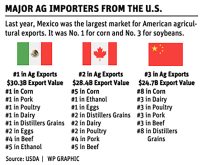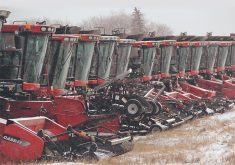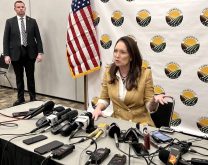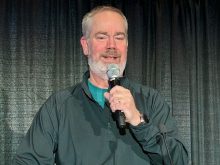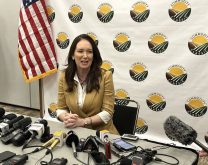PHOENIX, Arizona — Farmers and industry need to take on the work of convincing the general public about their safety and sustainability of food production.
“There is nothing more sustainable than a seventh generation (American) farmer,” said Jim Blome, President and CEO of Bayer Crop Science.
“They aren’t going to leave a mess for their kids,” he said.
There are misconceptions about what is happening in agriculture. Larger scale agriculture is thought of as abusive to land and animals said the head of Bayer.
Read Also

Short rapeseed crop may put China in a bind
Industry thinks China’s rapeseed crop is way smaller than the official government estimate. The country’s canola imports will also be down, so there will be a lot of unmet demand.
“We believe that connection is the key,” he told an audience of industry and journalists at the Ag Issues Forum that the company sponsors.
“Farmers are the villains in climate change and obesity,” he said about how producers are being cast by popular media and public discourse in social media and other internet mediums.
“The same people who want the latest iPhone would have their food produced with a team of mules,” said Blome.
It is up to farmers to engage with consumers, food writers and government, he said.
Frank Sesno of George Washington University and former CNN Washington bureau anchor said he is witnessing a trend towards public acceptance of misinformation about food and feels that is due to the disconnection of farmers to consumers.
“People are getting further and further from the farm,” he said.
Today the average U.S. farmer feeds 155 people. In 1965 the same farmer fed 26, said Blome about positive changes in food production efficiency. But he said that has added to the disconnection between food producer and consumer.
“The public has lost touch with their food and the reality of where it comes from,” he said.
“There is a need for information out there,” he said, suggesting that farmers should be finding time to speak to speak to students in schools and at local pubic meetings, wherever they can reach a few neighbours.
Blome believes in agvocacy, the term being used for advocating for agriculture.
“Everything is registered, the science is real and the science is renewed. We don’t leave things in the marketplace when better (pesticides) come along,” he said about his company’s dedication to its proper use of technology.
Mae Carol Jemison, a former astronaut and spokesperson for Bayer’s Making Science Make Sense programming in the U.S. said that people, including students, need to hear from those who participate in food production.
“We need to reach students directly, it needs to be hands on,” she said.
“The ASSET STEM, science, technology, engineering and math, program in Pennsylvania provided students with a kit from the National Science Foundation and teachers were taught to use them and they could build on that and it was scalable. That worked,” she said.
Scaling education up relies on many participants, she said about the need for farmers to take part in the process.
Contact michael.raine@producer.com



